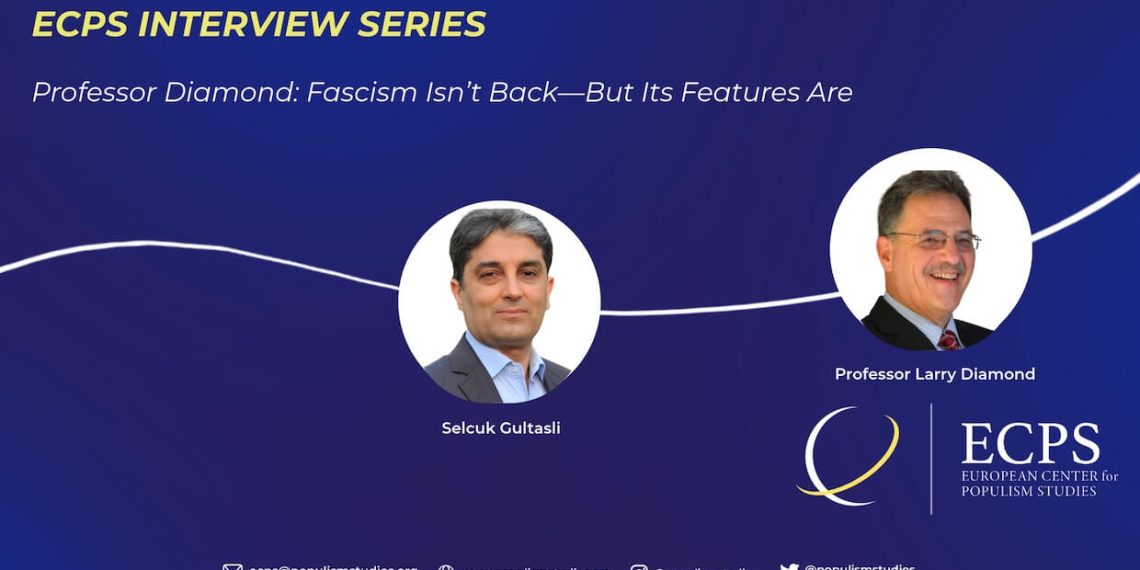In this timely and wide-ranging interview, Stanford University’s Professor Larry Diamond explores the resurgence of authoritarianism and the global diffusion of fascistic features. “We don’t have the fully formed, classic version of fascism today,” he explains, “but there is a lot of fascistic behavior, organization, and intent spreading worldwide.” Drawing on his democratic theory expertise and recent support for an international declaration warning that “the threat of fascism is back,” Professor Diamond dissects how elected strongmen exploit polarization, subvert institutions, and erode epistemic authority. From Erdoğan to Orbán to Trump, he examines the authoritarian playbook and offers paths forward—through institutional reform, global alliances, and deliberative democracy—to defend liberal norms before they are incrementally strangled into irrelevance.
Interview by Selcuk Gultasli
In an age of democratic erosion and the rise of authoritarian populism across continents, Professor Larry Diamond, one of the world’s foremost scholars on democracy, joins the European Center for Populism Studies (ECPS) to assess the contemporary mutations of fascism. As a senior fellow at Stanford University’s Hoover Institution and Freeman Spogli Institute for International Studies, Professor Diamond brings a deeply informed and historically grounded perspective to the question that frames this conversation: Are we witnessing a return of fascism—or something disturbingly adjacent?
Reflecting on the recent international declaration signed by Nobel laureates and leading intellectuals warning that “the threat of fascism is back,” Professor Diamond strikes a careful but urgent tone. “I think it’s better to talk about fascistic properties or features rather than fascism per se,” he explains, “because I don’t think we have the fully formed, classic version of it in many places today. But there is a lot of fascistic behavior, organization, and intent that’s spreading around the world today.”
Throughout the interview, Professor Diamond underscores the ways in which elected strongmen—from Narendra Modi in India to Viktor Orbán in Hungary, from Recep Tayyip Erdoğan in Turkey to Donald Trump in the United States—gradually dismantle liberal-democratic norms. This process, which he calls the “incremental strangulation” of democratic institutions, shares strategic continuities with the fascist playbook of the 20th century, even if it is less overtly violent in form.
The interview also addresses the weaponization of cultural and religious norms, the co-optation of far-right discourse by centrist parties, and the epistemic breakdown that enables authoritarian actors to dominate public narratives. Professor Diamond warns of “a mode of thinking and reasoning that puts blind faith in a single leader and party,” a dynamic echoed in the declaration’s call to “uphold facts and evidence” in the face of disinformation.
The Declaration Against the Return of Fascism, published on the centenary of the original 1925 anti-fascist manifesto, serves as a timely and powerful backdrop to this conversation. Signed by a wide array of Nobel laureates, leading scholars, and cultural figures, the declaration urges renewed commitment to democratic values, multilateralism, and human rights. It warns of a “renewed wave of far-right movements” that threaten to erode hard-won liberties under the guise of nationalism and moral purity.
As Professor Diamond makes clear, the danger we face today is not merely political—it is civilizational. And while the forms may differ from the 1930s, the stakes are every bit as high.


